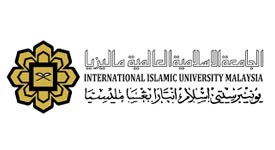
Start Chat with a Counsellor

| Study Mode | FULL TIME | ||||
| Level | POST-GRADUATE | ||||
| Duration | 4 Years | ||||
| Intake |
|
ADMISSION REQUIREMENTS
General requirements
Conform to the Postgraduate Policies and Regulations of the University
. Specific requirements
Malaysian applicant
a) Possesses Bachelor of Medicine and Bachelor of Surgery (MBBS) or MD degree from an institution recognized by the Malaysian Medical Council (MMC).
and
b) At least one year of post-full registration of clinical experience certified by the relevant authorities (3 years post graduation).
International applicant
a) Possesses a Bachelor of Medicine and Bachelor of Surgery degree or equivalent from an institution recognized by the Malaysian Medical Council (MMC)
. b) Qualifies for registration under the Medical Practitioner Act 1971 (Act 50) of Malaysia
. c) If the institution which the applicant graduated from is not recognized by the Malaysian Medical Council (MMC), their application may be considered with ‘conditional offer’ if they can obtain ‘limited registration’ with MMC
d) At least three years of post-full registration of clinical experience by the relevant authorities
. e) International English Language Testing System (IELTS) with average total minimum score of 6 OR Test of English as a Foreign Language (TOEFL) with a minimum score of 550
. Other requirements
a) Passed the National Conjoint Board (Radiology) entrance evaluation and interview.
b) Favorable referees’ reports
. c) Other relevant entrance evaluation as required by the University:
d) English Proficiency Test (exempted if candidate has obtained a minimum score of 6 for IELTS or 550 for TOEFL).
PROGRAMME STRUCTURE
Phase I (Year 1)
The general objective is to enable candidates to acquire knowledge of
- Radiological anatomy
- Radiology physics (including radiation hazards & protection
- Radiographic techniques
- Radiologic equipments & apparatus
- Radiology procedures
- Basic musculoskeletal trauma (extremities)
- Contrast media, radioisotope and related drugs used in radiology
- Introduction to radiation hazards & protection
- ICT and applications in radiology
The candidates are required to apply the knowledge in the clinical problem- solving and decision-making process in the management of patients, including performance of procedures under supervision.
Candidates will undergo rotations in all basic and appropriate advanced imaging modalities. They will sit for the Professional I examination at the end of Phase I when the required criteria are fulfilled.
Phase II (Year 2 & Year 3)
The general objective is to enable candidates to acquire knowledge, skills and develop good attitude appropriate for the management of patients in the various radiology subspecialties which will be useful in incorporating multi disciplinary approaches.
The candidates are expected to continuously apply the knowledge and skills gained in Phase 1.
Candidates will also prepare and conduct research project leading to a submission of a dissertation. Candidates are required to attend short courses in Research Methodology, Biostatistics and Good Clinical Practice
They will sit for the Professional II examination at the end of Phase II when the required criteria are fulfilled.
Phase III (Year 4)
The general objective is for the candidates to function as a ‘consultant-in-training’ and supervise candidates in Phase 1 and Phase 2.
Candidates will learn and gain experience in Management in Radiology and Quality in Radiology.
Candidates are required to present and submit their dissertation.
They will sit for the Professional III examination at the end of Phase III when the required criteria are fulfilled.
Copyrights © 2024-25 Education Malaysia. All rights reserved.
